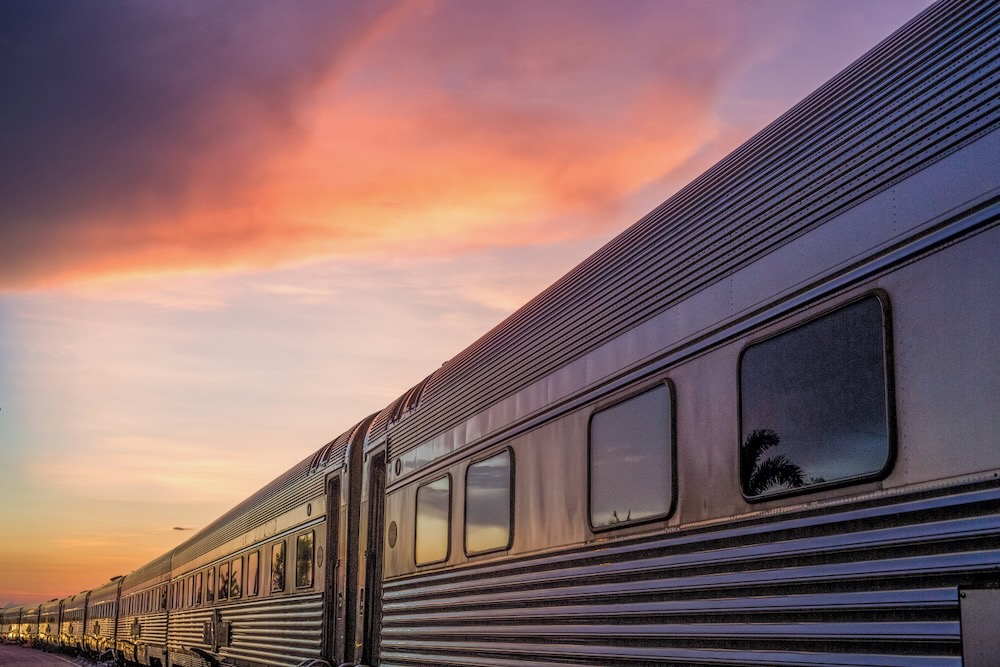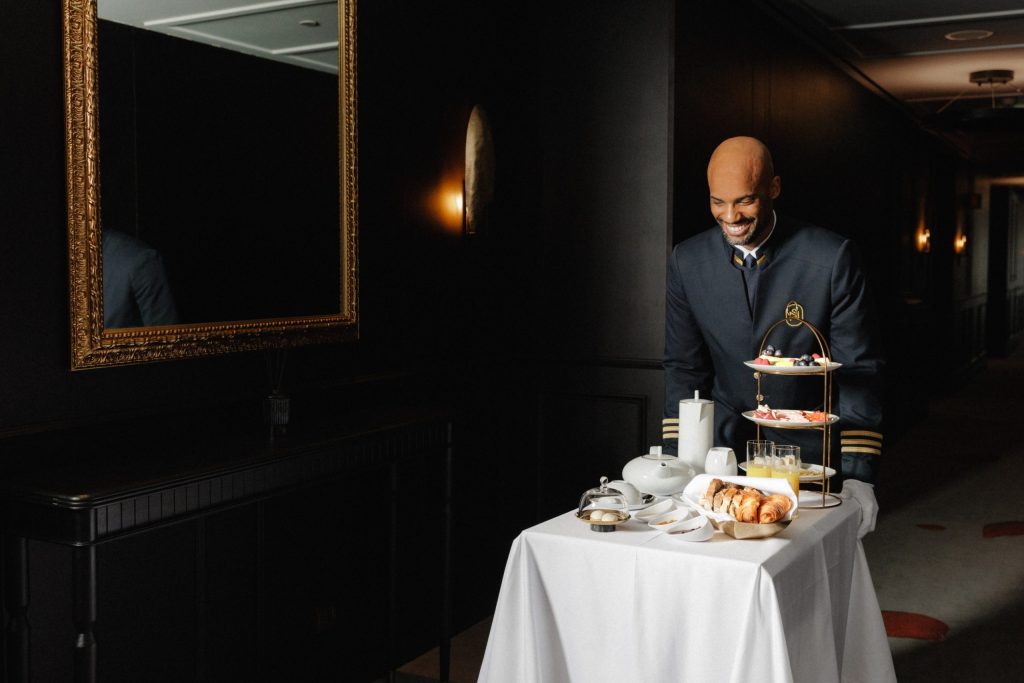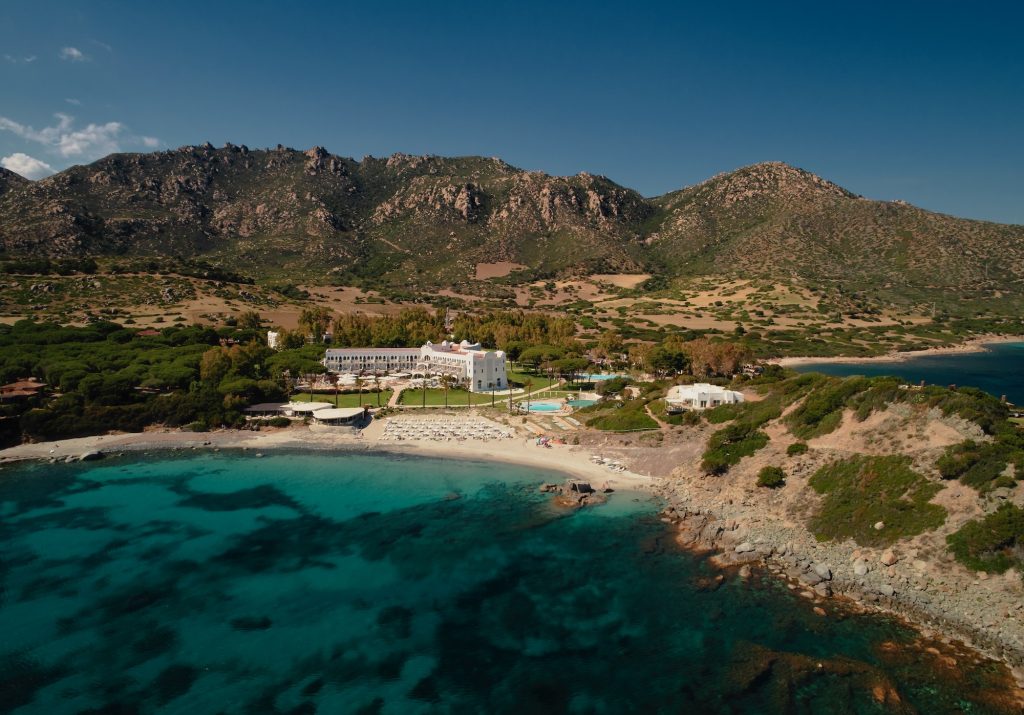The Ghan is celebrating its 20th anniversary of the final section of line opening between Alice Springs and Darwin. Lisa Young recently discovered more about this incredible luxury train on a recent trip through Australia’s Outback. Read on to discover more.
To travel on one of the world’s iconic trains, The Ghan is turning a trek through Australia’s awesome Outback into an unforgettable desert cruise in unparalleled style.
The immense Outback landscape is like nothing else on our planet, and The Ghan takes you right through its heart in comfort.
It was the start of The Ghan Expedition, an epic train adventure that rolls between the wet tropics of Darwin in the Northern Territory (NT) to the wheatfields and urban sprawl of Adelaide in South Australia (SA). The train winds along the spine of Australia to places of incredible natural beauty and Aboriginal cultural importance which most travellers, even Aussies, never lay their eyes on.
It was a warm September morning when we set off. The elegant, snake-like silver body of the train overlapped Darwin’s long railway station at both ends. Then, with a firm jolt, The Ghan’s bold red and yellow engine began to haul its 36 silver carriages away from the platform.
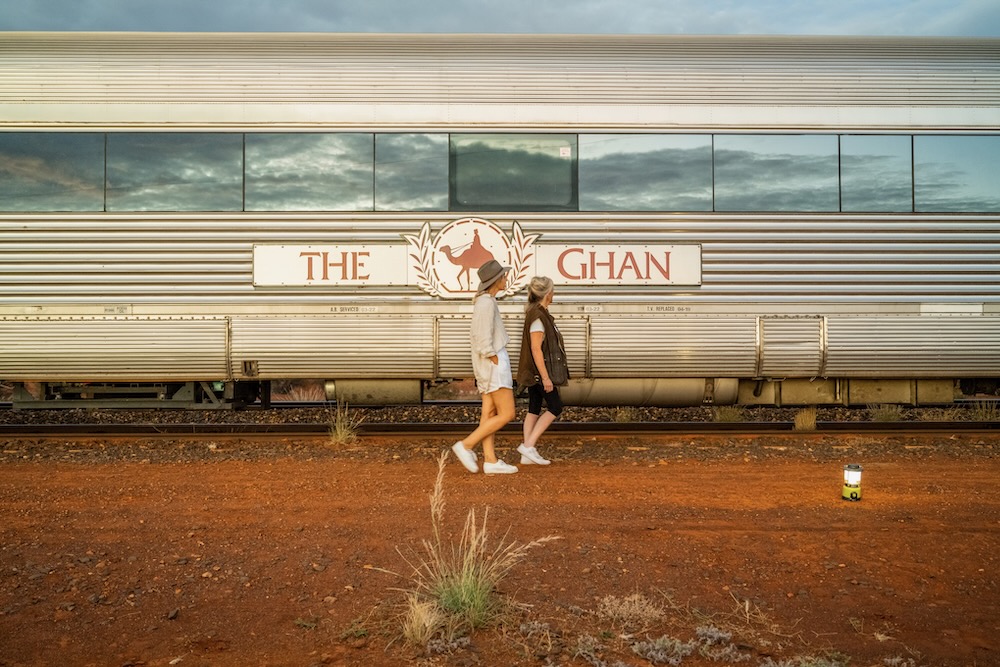
The carriages, which date to the ’60s, rocked and rivets squeaked as we picked up speed and soon Darwin was left behind in the dust.
Before boarding, I had two days exploring Darwin, the NT’s capital city, full of inner-city parks, significant indigenous sites and fine beaches. I stayed at the Adina Hotel on the waterfront; it’s surrounded by some of the NT’s best bars and restaurants, such as seafood specialists Snapper Rocks, known for their fresh and sustainable local produce. I soaked up Darwin’s renowned sunset on a dinner cruise on board the ‘Charles Darwin’ vessel, where you can graze your way through gigantic seafood platters paired with Australian wines.
Back on board the train… we were about to pass through Australia’s gritty Outback – north to south and cruising at an average 95 kilometres per hour. We left Darwin behind and snaked our way towards the Outback towns of Katherine, Alice Springs and Coober Pedy, on our way to the opposite coast at Adelaide.
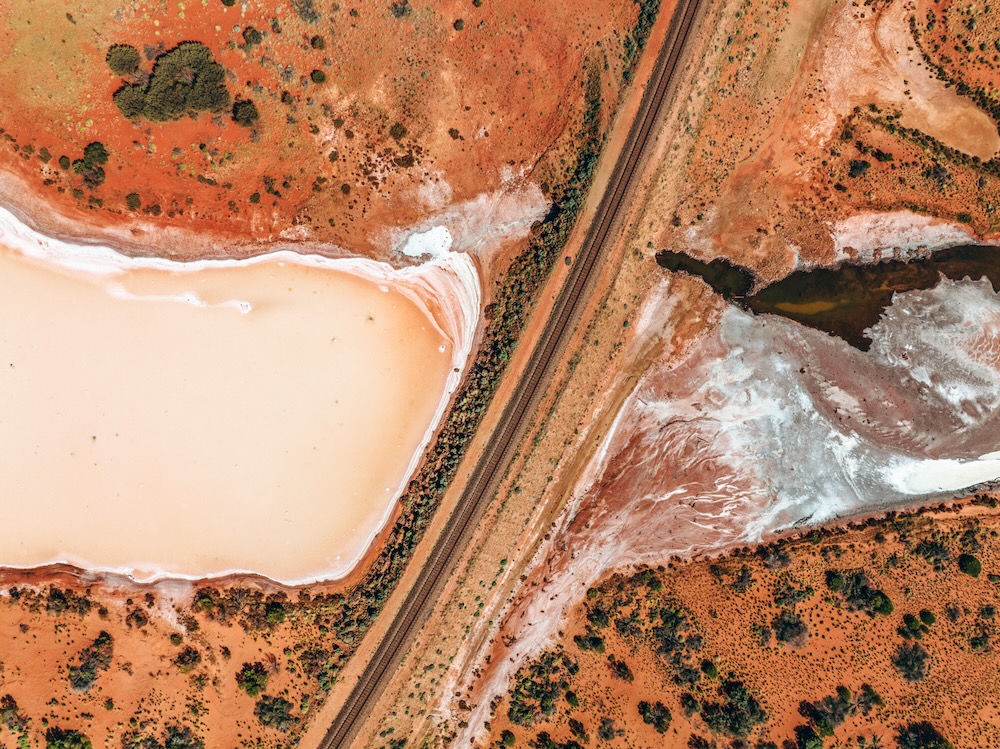
The Ghan Expedition is a romantic, adventurous and comfortable four-day, three-night railway journey through 2,979 kilometres of Australian Outback. It is one of the world’s iconic rail routes, providing an unfolding adventure in comfort and style that runs between the months of April and October and is operated by Journey Beyond.
The train was named for the pioneering cameleers, many from Afghanistan who helped open up the inland of Australia. The first Ghan departed Adelaide in 1929 en route to Alice Springs, at the centre of Australia. It wasn’t until 2004 that a modern track stretched all the way to Darwin; 2024 marks the 20th anniversary of the final section of the line opening between Alice Springs and Darwin.
The Ghan is 914 metres long, 1768 tonnes and has 36 carriages, plus two locomotives and uses 40,000 litres of diesel for the journey, as well as carrying 3000 litres of water for each carriage. It can take 49 crew members and up to 300 guests in Gold, Gold Premium or Platinum Service. It is so long that, at one point, I spotted the chef travelling efficiently along the platform by bicycle to get from one end to the other.
I travelled in one of the Platinum service suites, with a beautiful double-sized compartment with expansive window views from both sides of the train.
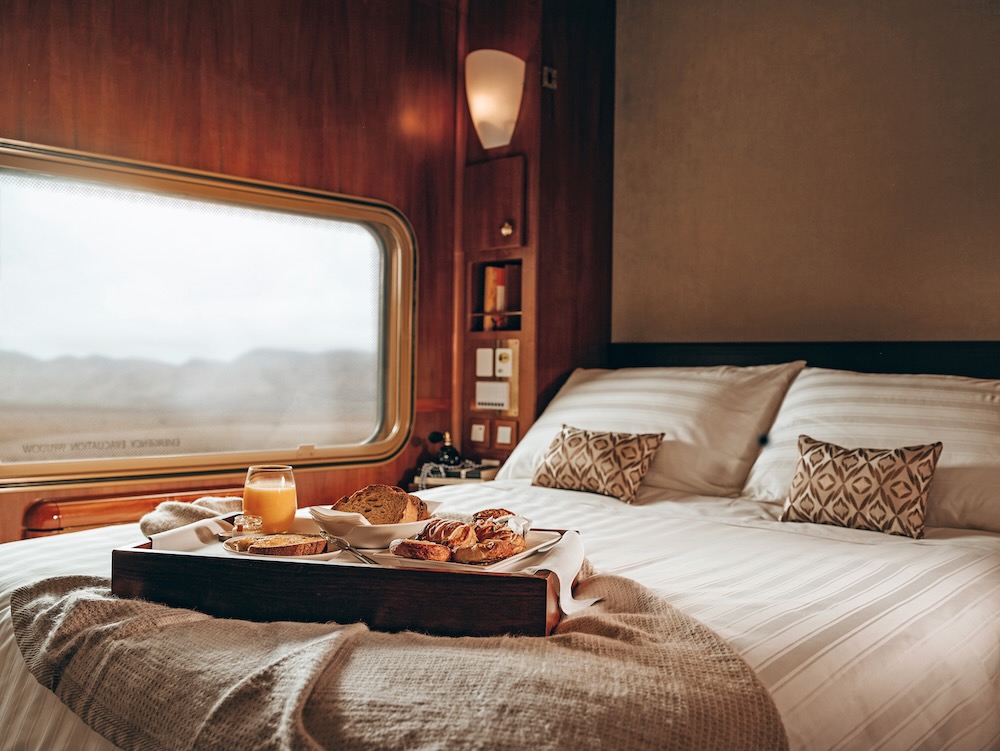
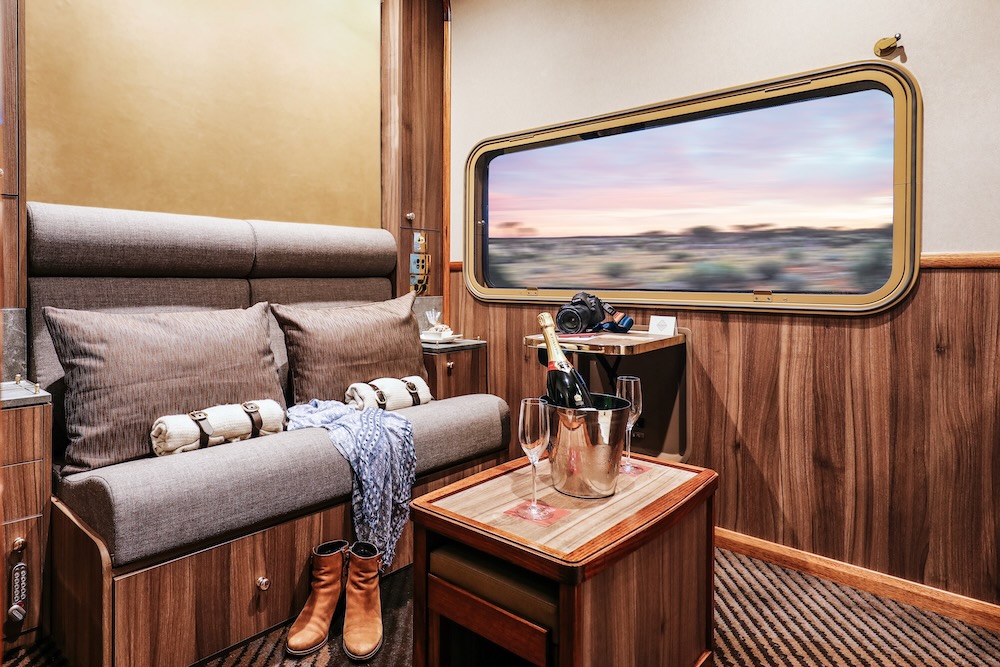
I spent much of my time in the Platinum Club carriage, sipping cocktails and listening to Outback stories from the crew. It is decorated in a style that gives passengers a sense of comfort with timber flooring, brass fittings, quartzite tabletops, and large windows to make it easy to spot wildlife outside… kangaroos, Emu, wild camels, dingoes and birds of prey.
The Platinum Club carriage offers a daytime lounge setting with adaptable dining options. There’s no end to the hospitality on The Ghan – all food and drinks are included in Platinum Service and French champagne is on tap.
The food and wine served varies according to the region you’re travelling through, and the two-course lunches and seven-course dinners are paired with champagne and premium wines.
On board, we were served unusual dishes including grilled kangaroo loin; smoked kingfish with beetroot; grilled crocodile-tail fillet; and scrumptious grilled saltwater barramundi with coconut sauce – a fish for which the Northern Territory is well known. I was impressed with the kitchen and waiting staff, who operate so meticulously in such a confined space.
Chef de Partie, Rudy Heng, has been working on the train for four years and oversaw food on our expedition.
“Our menu changes seasonally, using the very best ingredients and we try to use local Australian ingredients and native herbs, such as crocodile meat for our crocodile dumplings and fresh fish such as barramundi, kingfish and salmon from Darwin”, he said.
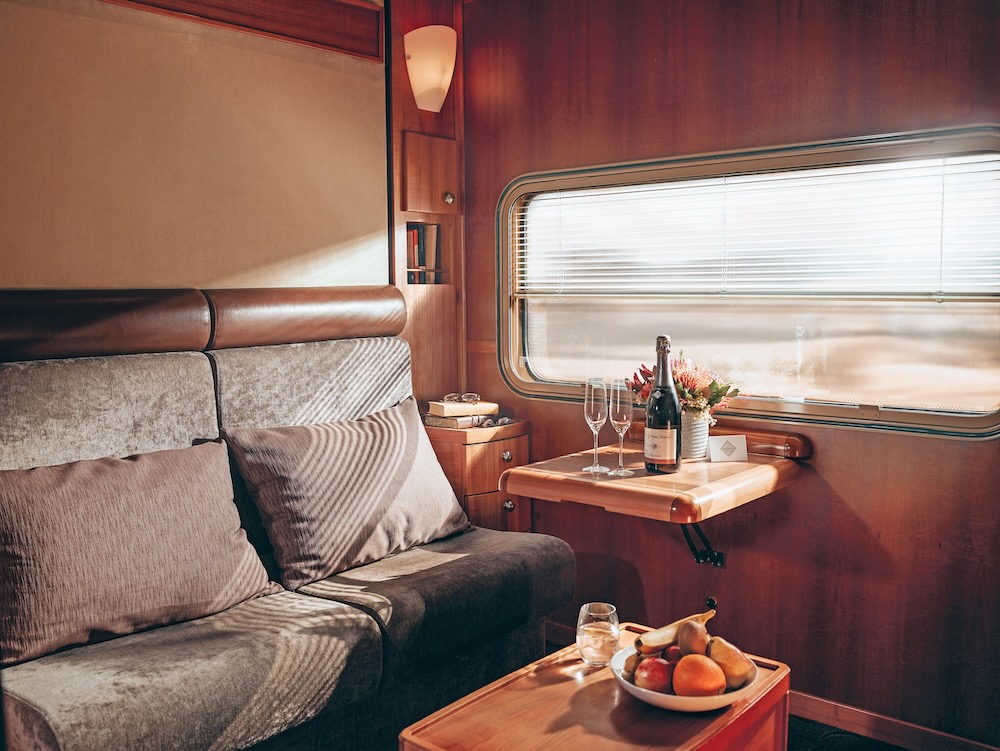
On my first night, I returned to my cabin to find that my personal steward had discreetly transformed the spacious lounge-style suite (with a moveable table and ottomans) into an inviting bedroom, with crisp white linens and plump pillows… and a nightcap! Rocking rhythmically over the tracks, I was soon soothed to sleep.
All Platinum Service suites include French champagne, Grey Goose Vodka and Glenfiddich whisky, Australian toiletries by Appelles Apothecary with the finest essential oils and natural ingredients from renewable resources… and edible treats by award-winning Adelaide chocolatier, Bracegirdle’s House of Fine Chocolate.
There’s no Wi-Fi (or television) on board; it goes against the principle of ‘slow travel’. Travelling on The Ghan offers a digital detox, and an exhilarating escape from modern technology while passing through Australia’s ancient landscape.
Off-train experiences can be selected ahead of departure or when boarding the train in Darwin. A selection of experiences is offered at each location. Pulling out of Darwin, The Ghan crew visited each cabin to discuss the different off-train experiences along the route.
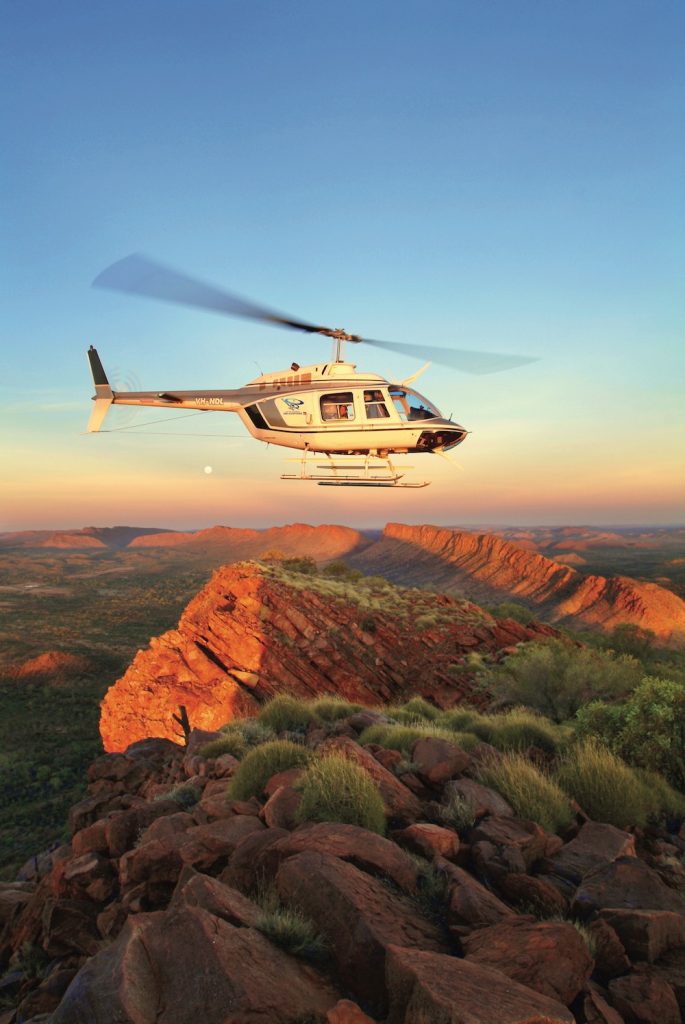
At Katherine, 300 kilometres south of Darwin, I took a helicopter flight to Nitmiluk National Park, and flew over the river there, low enough to appreciate its breathtaking gorges and extraordinary sandstone cliff faces. Back on the ground, I experienced an Outback horse and dog training experience, too.
Another off-train experience includes visiting the Cutta Cutta Caves with its glittering limestone formations of stalactites and stalagmites. The local Jawoyn Indigenous people named the caves Cutta Cutta (meaning ‘many stars’) as they believe the caves are where the stars rest during the day.
Throughout the night, the train travelled 1,183 kilometres to the remote town of Alice Springs.
I rose with the sun and watched it light up the red ochre Outback, the coarse spinifex plants, and the desert oaks that lined the train tracks. The flat, sun-scorched land often appears mostly red and brown but, on alighting from The Ghan at Alice Springs station, I realised that it was greener than I’d expected and the temperature much cooler, chilly almost, until the temperature quickly climbed to a comfortable 23°C. And even when the landscape is at its most sun-baked, it is a world of desert dwellers in the form of plants, animals and human life.
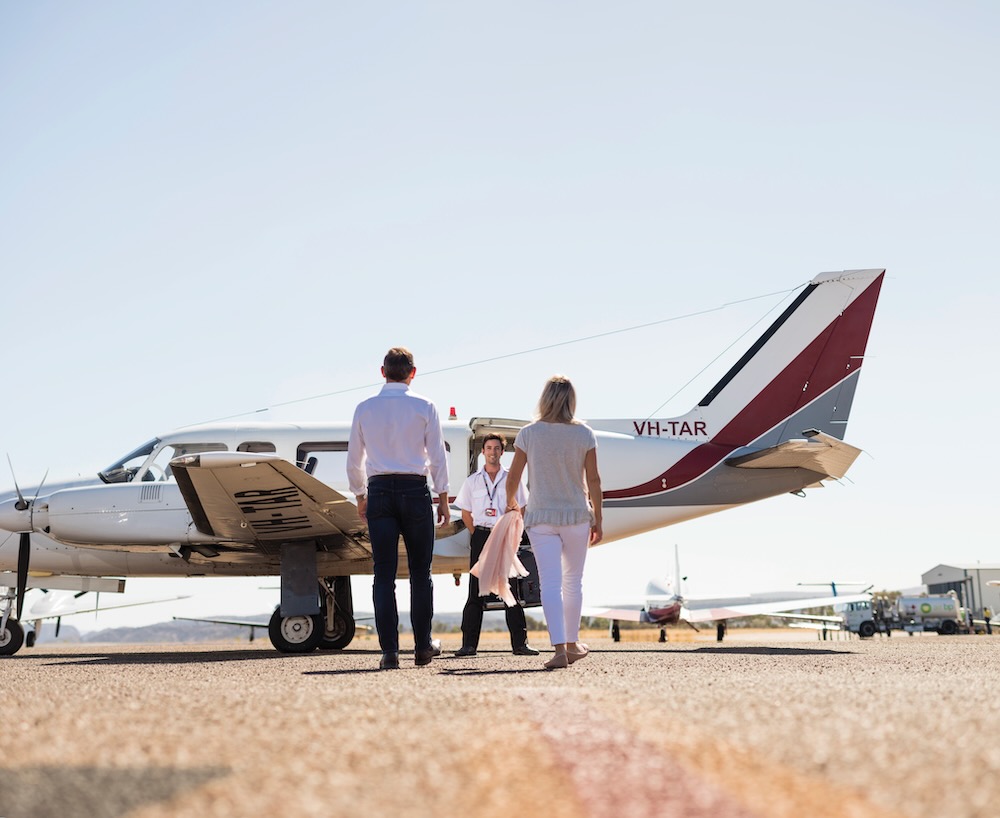
I traded in the comfortable, air-conditioned train for a bumpy but thrillingly scenic 450-kilometre flight in a light aircraft over the hash-red Outback terrain to the remarkable sandstone monolith of Uluru (formerly known as Ayers Rock), followed by a walking tour of the 550-million-year-old natural sandstone monolith – a sacred site for the Yankunytjatjara and Pitjantjatjara people indigenous to the region.
In the evening, all the train’s passengers were invited to an open-air dinner at the historic Alice Springs Telegraph Station on the outskirts of the town. Serenaded by a local country music band, we dined al fresco at large circular tables, with free-flowing wine… even camel rides were on offer!
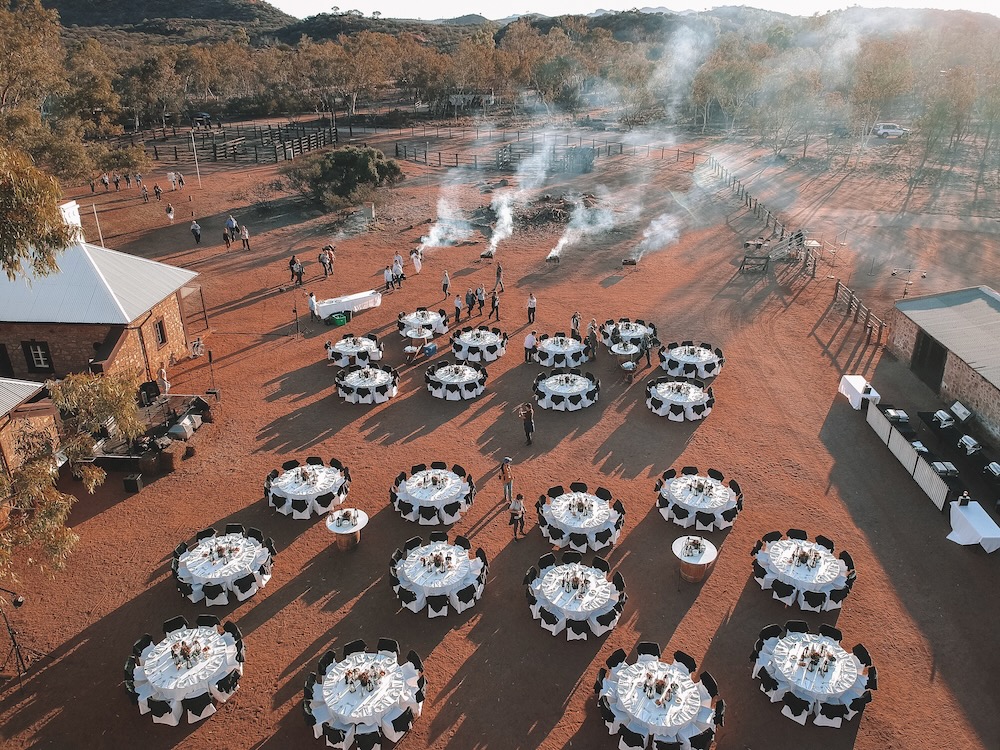
We crossed into South Australia on day three, the boundless Outback sky erupting in a display of pink hues as sunrise gave way to another dazzling morning. We were surrounded by sun-baked emptiness that shimmered in the antipodean dawn.
When we reached the small, quirky opal-mining town of Coober Pedy, our train was far too long to fit into the small town’s station, so we stopped in a siding at Manguri Station, 42 kilometres north of Coober Pedy, in the middle of the Outback. From there, we were transported into town.
Coober Pedy is full of independent miners looking for their fortune. Most of the world’s opal is found in this area. Temperatures here can reach 50°C in the summer – and that’s in the shade! Some of the local people I met live underground, in spaces resembling giant rabbit burrows, so that they can escape the soaring desert temperatures… underground it’s much cooler, at around 20°C.
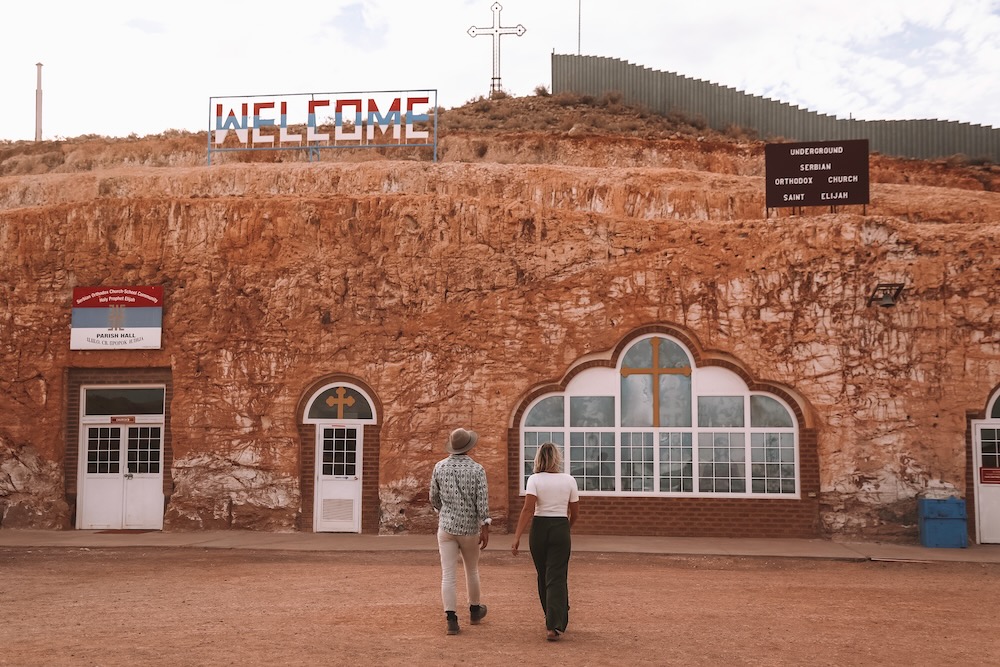
We visited the famous Dingo Fence, which is longer than the Great Wall of China and stops about 95% of dingoes crossing the country. At the Kanku-Breakaways Conservation Park, we explored extraordinary ancient rock formations. I recognised the landscape, as it was featured in the film The Adventures of Priscilla, Queen of the Desert.
Our final stop was Adelaide, South Australia’s cosmopolitan capital and the end of the line. Beyond, the mighty Southern Ocean roared, the next land mass is Antarctica. We stepped down from the train with a sense of achievement and wonder – a feeling that we had done something unique and special.
Reaching South Australia’s cosmopolitan capital, Adelaide, meant the end of our rail journey. Adelaide is a young, vibrant city, rich in recent history and with a passion for fine living. It boasts a superb climate, great food and a thriving cultural scene.
Back in the ‘real’ world, I checked into the five-star Eos hotel by SkyCity, centrally located on Festive Drive and near Adelaide’s train station and the cafés of Gouger Street. Close by are the green banks of the River Torrens, the colourful central market and the Art Gallery of South Australia. You can also jump on board a vintage tram to the beach at Glenelg.
From the city, I drove for an hour to the vineyards of the leafy Adelaide Hills along what’s known as the Epicurean Way and home to some of South Australia’s best food, wine and scenery.
I stopped at the Bird in Hand winery, a world-renowned producer of fine wine. Art is expressed all around the luxurious surroundings; when I turned into the drive I passed a giant pair of Ray-Bans on the lawn.
I later checked into the Sequoia Lodge hotel, the ultimate in luxury and the perfect way to round off my Outback adventure. This 14-suite, adults-only luxury lodge is ensconced in nature, sitting atop Adelaide’s Mount Lofty (affectionately known as Koala Mountain) and only 20 minutes from central Adelaide.
I stepped off The Ghan with a sense of achievement and wonder. The Ghan Expedition is one of the great rail journeys of the world; it’s utterly unique and you won’t experience anything like it anywhere else on the planet.
To book The Ghan Expedition head to journeybeyondrail.com.au

